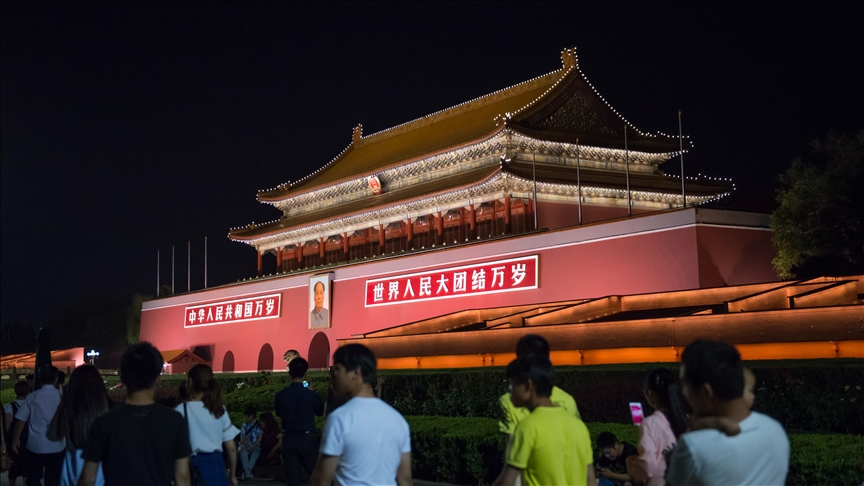China rejects US remarks over Tiananmen Square crackdown
Beijing calls Secretary of State Rubio's remark 'attack' on China's political system
 A view of the Tiananmen square - China's symbolic political heart ( ZHONG ZHENBIN - Anadolu Agency )
A view of the Tiananmen square - China's symbolic political heart ( ZHONG ZHENBIN - Anadolu Agency )
ANKARA
China on Wednesday rejected US Secretary of State Marco Rubio's remarks on the 1989 Tiananmen Square crackdown, terming them an "attack" on the country's political system.
"The erroneous statements by the US side maliciously distort historical facts, deliberately attack China's political system and developmental path, and seriously interfere in China's internal affairs," Chinese Foreign Ministry spokesman Lin Jian told reporters in Beijing.
The US, in its commemoration of the Tiananmen protests in 1989, "distorted" historical facts and attacked China's political system, he said.
Rubio on Tuesday said the "world will never forget" what happened on June 4, 1989, even as Beijing "actively tries to censor the facts."
"Today we commemorate the bravery of the Chinese people who were killed as they tried to exercise their fundamental freedoms, as well as those who continue to suffer persecution as they seek accountability and justice for the events of June 4, 1989," he said in a statement.
Hitting back at his remarks, Lin said China has lodged a complaint to the US side.
"The Chinese side is strongly dissatisfied with this and firmly opposes it. We have lodged a solemn protest with the US side," he added.
Echoing Rubio's remarks, Taiwan's leader Lai Ching-te vowed to preserve the "memory of victims of the bloody crackdown."
"Authoritarian governments often choose to be silent and forget history; democratic societies choose to preserve the truth and refuse to forget those who have contributed to the ideal of human rights and their dreams," Lai said in a Facebook post ahead of an annual vigil in Taipei's Liberty Square.
The event to remember victims of the 1989 massacre in Beijing is held every year on June 4.
The 1989 protests started on April 15 and were forcibly suppressed on June 4 when the Chinese government sent the military to gain control of Tiananmen Square. Nearly 300 people died and 7,000 were injured, including soldiers.








